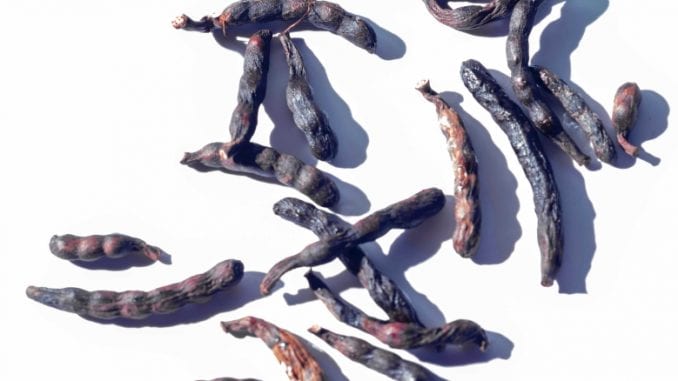
We continue to explore global coffee drinks and dive back into café Touba of Senegal, including recipes for you to try at home!
BY SANDRA ELISA LOOFBOUROW
SPECIAL TO BARISTA MAGAZINE
Photos by Evan Gilman
In many places, coffee is a culinary newcomer, part of a relatively recent and still present colonial history. Whether it’s because of blossoming production and global trade, or because of the physical effects that a cup of coffee can impart, nearly every culture has developed its own particular coffee tradition. In places with strong pre-colonial culinary traditions, coffee was absorbed and adapted into existing practices, adding to the cultural miscegenation that colonialism always creates. Food and beverage traditions in particular, being intensely personal, have a way of absorbing new practices and making them their own. As an industry that prides itself on its global community and an adventurous palate, specialty coffee has a great opportunity to learn from varied and tasty traditions of coffee consumption.
In this series, I will explore regional and cultural coffee beverages and the particular confluence of historical and social circumstances that brought these beverages into existence. We’ve explored the history of café de olla and its importance and revival in Mesoamerica, and then jumped to Senegal to explore café Touba, a drink made with coffee and Selim pepper. In this chapter, we talk about how the drink is enjoyed today and how to make café Touba.
Café Touba in Daily Culture
Upon returning to Senegal from exile, his followers found that Serigne Touba drank coffee daily, especially before prayers, and always with a bit of Selim pepper mixed in. In this way café Touba, as the master himself called it, began as a sacred drink for the Mourides. The Sheikh even gave specific instruction on how to brew his Café Touba, citing prayers that should be recited before and after preparation.
After Serigne Touba’s death in 1927, the Mourides began building the Great Mosque of Touba, which is today the largest mosque in sub-Saharan Africa. Serigne Touba’s remains rest there, and every year there is an enormous festival called the Grand Magal that celebrates the anniversary of the Serigne’s exile to Gabon, but which also serves as a pilgrimage for the Mourides. During this time, the population of Touba swells to more than 3 million, and café Touba again becomes a sacred drink.
Although the monks rarely participate in politics themselves, it’s worth noting that the Mouride brotherhood holds a significant amount of political power in Senegal. During Grand Magal the Sheikhs hold audiences with favored political figures, an important gesture in a country whose population is more than 90 percent Muslim, with half of these subscribing to the Mouride sect of Sufism. This practice of receiving governmental delegations began in the colonial period as a way to allow mutual recognition between the Mourides and the French colonial government. Even café Touba is an example of the sect’s political power: Though café Touba was originally a beverage unique to the Mouride brotherhood, the fact that it has become so pervasive in Senegalese culture is an indication of how much influence this sect wields.
These days, café Touba is part of the daily routine. Mobile carts of hot, fresh café Touba are a common sight, and many young people take jobs running their own carts. The trade has become an important part of Senegal’s local economy, since the vast majority of people drink café Touba daily. The drink has a few different pet names, one of them being “keroséne” for its intense smell. It’s also sometimes called café ngoon/café de soir because it’s often taken in the afternoon or evening (ngoon means afternoon in Wolof).

Peppering in Some Café Touba
To make café Touba, you’ll need Selim pepper (I’ve been buying mine from Spice Ace in San Francisco), coffee, and water. Like so many coffee beverages, café Touba is often served with sugar but tastes lovely on its own. There are two ways to prepare the Selim pepper: for the “keroséne” effect, toast the entire pod for a few minutes in a pan or in the oven, and grind it up in a spice grinder. This is by far the easier method, but it imparts a much more powerful taste and aroma to the final beverage. The other option is to painstakingly liberate the grains from their pods, a process that becomes easier if the pods are toasted up first, but which will remain an ordeal regardless. The resulting seeds create a more delicate raisin and ginger note in the coffee, and offer an entirely unique experience. Most recipes ask for at least one-fourth the amount of Selim as coffee—for example, 10g of Selim powder for a 40g coffee dose. Since café Touba is traditionally made as an infusion, I’ve been brewing it in a Chemex with excellent results.
Café Touba offers a story of resistance and of cultural blending entirely unique to Senegal. These traditions are immensely valuable, and the recipes born out of the convergence of multiple cultures are worth acknowledging and learning from. They also happen to be delicious. In the case of café Touba, we have the opportunity to taste a spice from Gabon, a coffee tradition brought to Africa by the French, and a recipe created by a Muslim sect in Senegal all coming together to create a delightful drink.
 ABOUT THE AUTHOR
ABOUT THE AUTHOR
Sandra Elisa Loofbourow is the Tasting Room Director at The Crown: Royal Coffee Lab & Tasting Room. Her experience as a Spanish/English interpreter, working in kitchens, and teaching Argentine tango all influence and inform her approach to coffee. Sandra has been a barista, roaster, and green buyer for several companies in the Bay Area. She’s a certified Q Grader, and at Royal she does brew experimentation, coffee analysis, and creates inventive drinks. She’ll be heading up the Tasting Room at the Crown in Uptown Oakland, serving fascinating coffees and delicious education to consumers and professionals alike.

